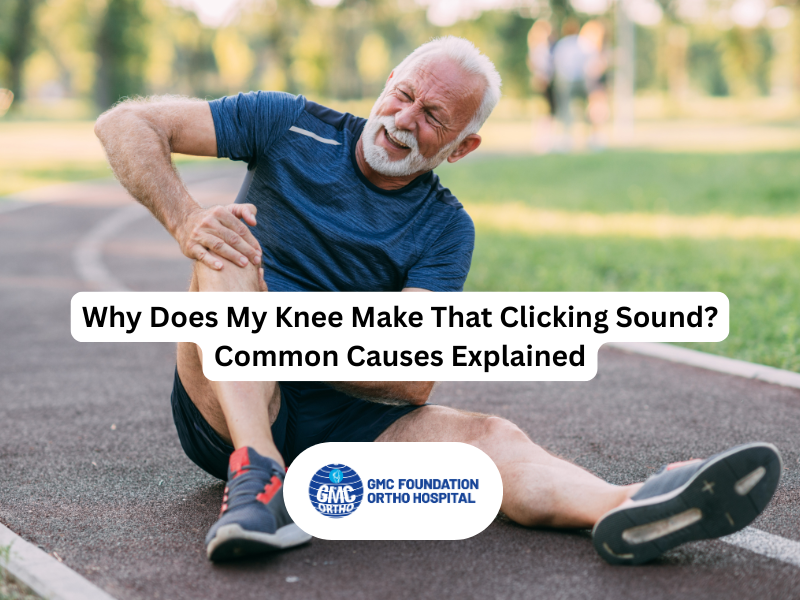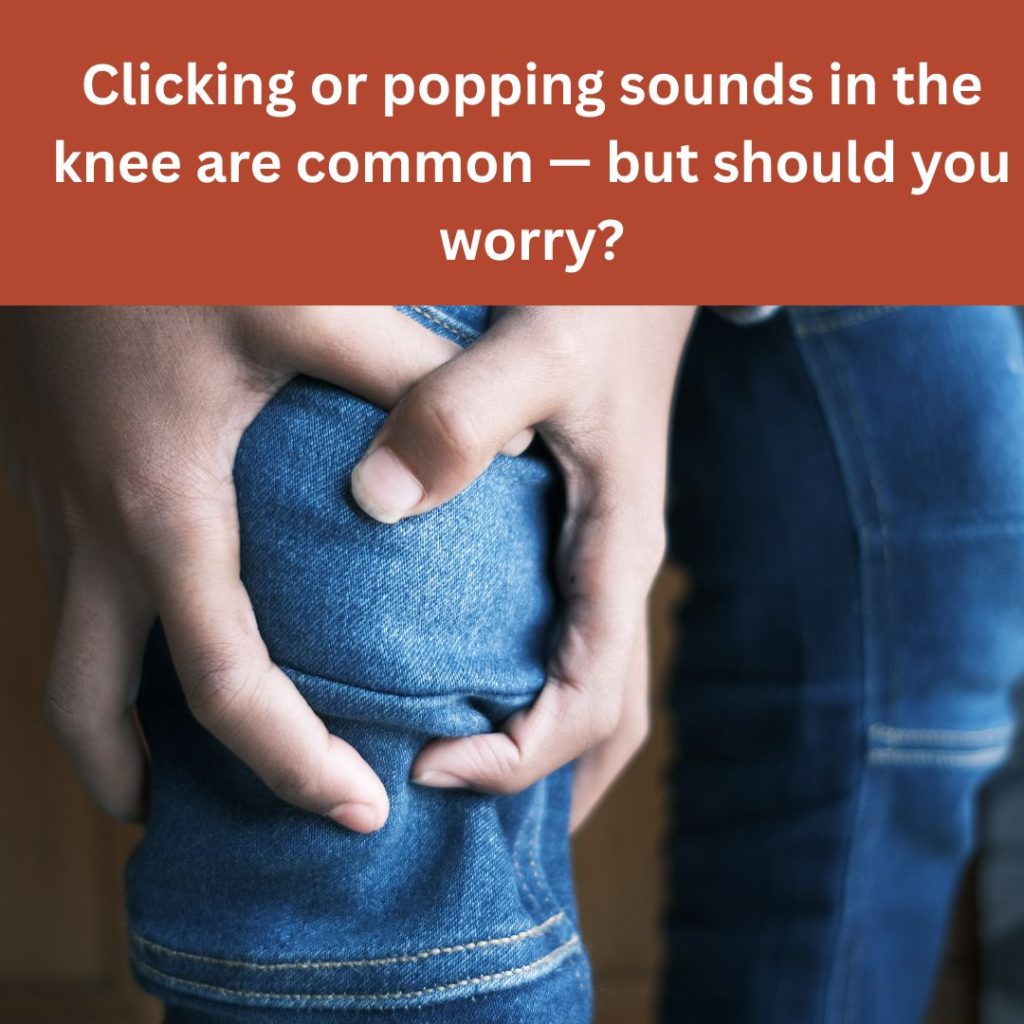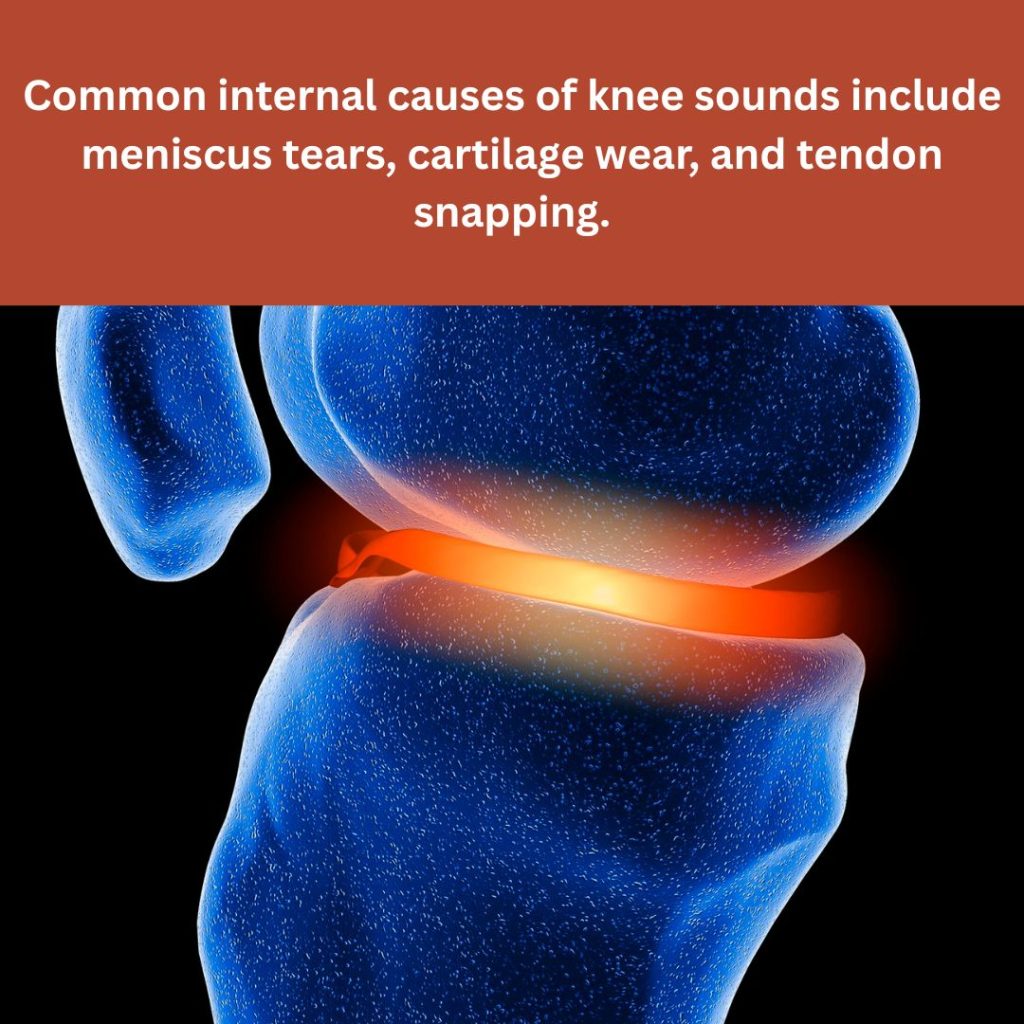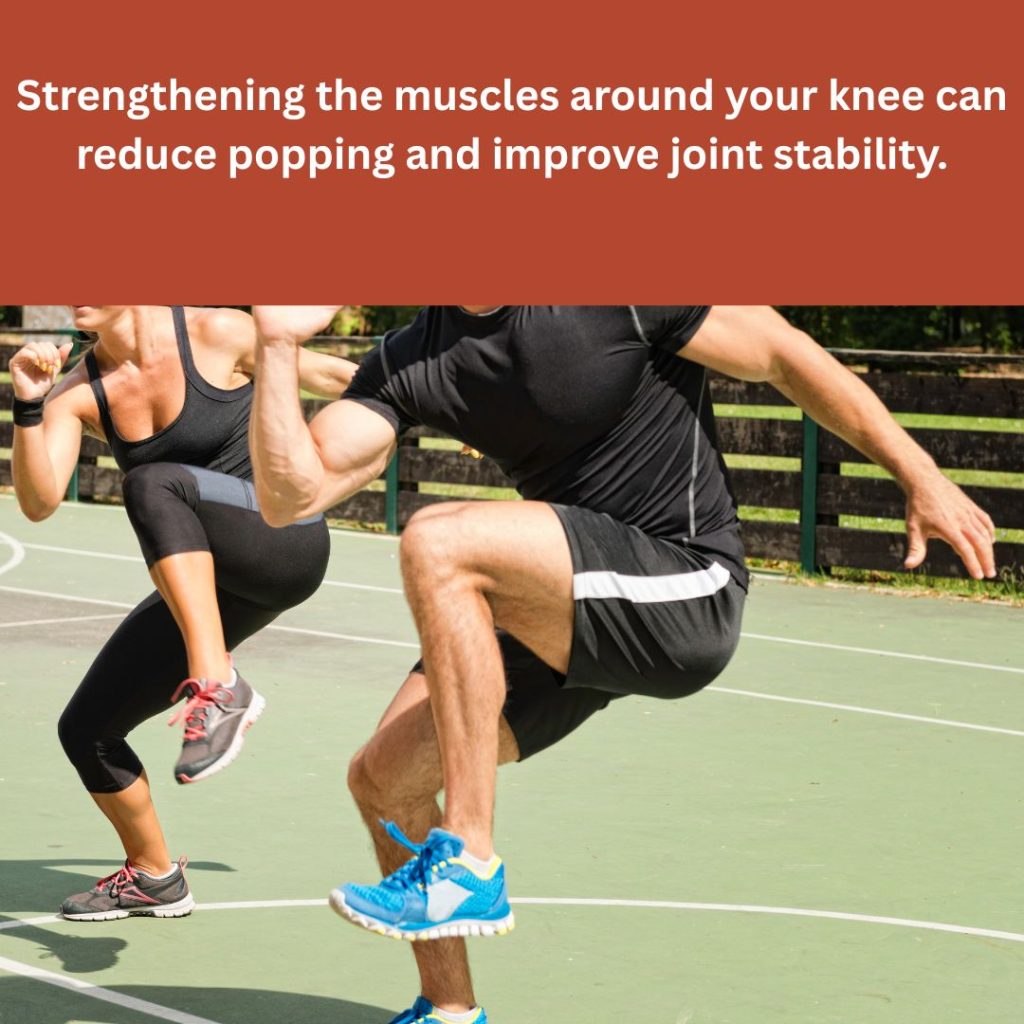9633789014




East Nadakkave, Kozhikode, 673011 9633789014
Book an Appointment
Note: This is an appointment request only Depending on the availability of the consultant, appointment will be confirmed to you through mail/call The appointment requests can be made minimum 48 hrs in advance

Why Does My Knee Make That Clicking Sound? Common Causes Explained
June 3, 2025Why Does My Knee Make That Clicking Sound? Common Causes Explained
Author: gmc ortho hospital
Introduction
Ever heard a sudden click, pop, or crack from your knee when you stand up, walk, or climb stairs? You're not alone. Knee sounds, medically referred to as crepitus, are incredibly common and often harmless — but sometimes they can signal underlying joint issues.In this blog, we’ll explore:
- What causes knees to click or crack
- When it's normal and when it’s not
- Associated symptoms to watch out for
- When to see a doctor
- Simple tips to reduce or prevent knee sounds
What Are Knee Sounds?
Knee sounds are noises — like clicking, popping, cracking, or grinding — that occur when you move your joint. These sounds are most noticeable during:- Standing up from a chair
- Walking up or down stairs
- Squatting or kneeling
- Exercising
Common Causes of Knee Clicking or Popping
🔄 1. Gas Bubbles in the Joint
Just like cracking your knuckles, knees can make sounds due to tiny gas bubbles in the synovial fluid — the lubricating fluid inside your joints.- Is it dangerous? No. It’s totally harmless and not a sign of damage.
- When does it happen? Often during quick or sudden movements, like getting up fast or stretching.
🦴 2. Ligament or Tendon Movement
Tendons and ligaments around the knee can snap slightly over bony surfaces, especially during activity or stretching.- Who experiences this? Athletes, people with tight muscles, or those who’ve just started new exercises.
- Is it a problem? Not unless it's accompanied by pain or swelling.
⚙️ 3. Patellofemoral Syndrome (Runner’s Knee)
This occurs when the kneecap (patella) doesn’t move smoothly over the femur (thigh bone), often causing clicking or grinding.- Symptoms: Clicking during stair use or squats, pain behind the kneecap, stiffness after sitting.
- Causes: Muscle imbalances, poor knee alignment, or overuse.
🔧 4. Meniscus Tear
The meniscus is a piece of cartilage that cushions your knee joint. Tears, especially in athletes or older adults, can lead to:- Clicking or popping sounds
- Sharp pain
- Swelling
- Joint locking
🧱 5. Cartilage Wear (Osteoarthritis)
As we age, the cartilage in the knee wears down, leading to bones rubbing against each other.- Result: A grinding or cracking sound during motion, called crepitus.
- Associated with: Stiffness, morning pain, and reduced joint flexibility.
🔄 6. Loose Bodies in the Joint
Sometimes, small fragments of bone or cartilage float inside the joint (due to injury or wear), creating a clicking or locking sensation. This is more serious and often needs an orthopedic consult.
When Should You Be Concerned?
Occasional clicking without discomfort is generally not a cause for concern. However, consult a doctor if the knee sounds are accompanied by:- Pain
- Swelling or redness
- Stiffness or limited motion
- Joint locking or buckling
- Instability or giving way
Simple Ways to Reduce or Prevent Knee Clicking
✅ 1. Strengthen Your Muscles
Strong leg muscles (especially quadriceps and hamstrings) help stabilize your kneecap and reduce misalignment. Try:- Straight leg raises
- Wall sits
- Step-ups
🧘 2. Stretch Regularly
Tight tendons or muscles can contribute to snapping or clicking. Incorporate:- Hamstring stretches
- Calf stretches
- IT band foam rolling
👟 3. Wear Proper Footwear
Shoes with good arch support and cushioning help with overall joint alignment. Avoid worn-out shoes or heels during long walks.🪑 4. Maintain Good Posture and Joint Alignment
Avoid sitting or standing in positions that put pressure on the knees. Use ergonomic chairs and take frequent movement breaks.⚖️ 5. Watch Your Weight
Excess weight increases pressure on the knees, accelerating cartilage wear and worsening joint sounds.💊 6. Use Supplements (If Recommended)
For mild cartilage wear, supplements like glucosamine and chondroitin may help support joint health. Always consult a doctor before starting any supplement.
Treatment Options (If Needed)
If your knee clicking is due to an injury or underlying condition, treatment may include:- Physical therapy
- Anti-inflammatory medications
- Knee bracing or support
- Arthroscopic surgery (in severe or chronic cases)
Conclusion
A clicking knee isn't always a cause for panic. In many cases, it's completely normal and harmless. However, persistent sounds combined with pain or swelling shouldn’t be ignored. Listening to your body — and your knees — can help you stay mobile, active, and injury-free.✅ Quick Summary
| Cause | Normal? | Needs Attention If... |
|---|---|---|
| Gas bubbles | ✅ Yes | ❌ Unlikely |
| Tendon snapping | ✅ Yes | ✅ If painful |
| Runner’s knee | ⚠️ Maybe | ✅ With pain/swelling |
| Meniscus tear | ❌ No | ✅ Always |
| Arthritis | ⚠️ Maybe | ✅ With stiffness |
| Loose bodies | ❌ No | ✅ Always |
